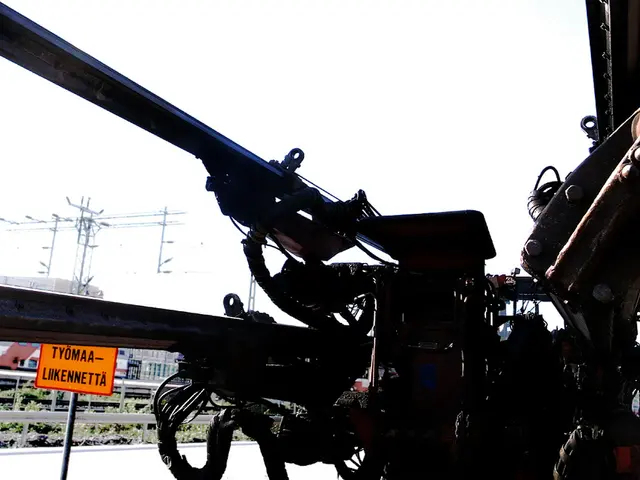Military Tanks are experiencing a decrease in cost
Rheinmetall Boosts Military Drones Development and Prepares for Defense Boom
Rheinmetall, Germany's leading weapons manufacturer, is expanding its operations to include the development of military drones in Brunswick, as it gears up for a surge in defense orders following Russia's attack on Ukraine.
According to CEO Armin Papperger, Rheinmetall anticipates multi-billion-dollar orders for its products, with the order books potentially reaching a volume of 120 billion euros by mid-2026. This growth is expected to come from various sectors, including the marine industry and the development of military drones.
The company's success is built on a foundation of strong financial discipline, strategic partnerships, and efficient large-scale production. Rheinmetall has managed to keep prices for tanks, armored vehicles, and artillery systems lower despite increased demand, by not requesting price increases to offset post-pandemic inflation and maintaining strong delivery capabilities that satisfy government customers.
Rheinmetall's order backlog currently stands at €55 billion, with forecasts of new orders around €80 billion by mid-2026. This indicates the company's ability to scale and produce efficiently, helping control unit costs despite surging demand.
The company's strategic partnerships include collaborations with US giant Lockheed Martin on aircraft components production and missile production. Rheinmetall is also forming alliances with other defense companies, such as Italian firm Leonardo, to build tanks in a joint venture.
In addition to its traditional products, Rheinmetall is investing in next-generation technology and production capacity. Investments in precision-guided munitions, missile production (plans for €5B+ capacity by 2030), and joint ventures position Rheinmetall to meet demand efficiently, potentially lowering the price pressure from rapid demand growth due to technological and scale advantages.
Rheinmetall is also looking to convert civilian factories, including the Volkswagen site in Osnabrück, to military production. The company is in exclusive talks with Leonardo to acquire Iveco's military truck business, and is planning to inaugurate the largest ammunition factory in Europe in Lower Saxony in the near future.
Business around ammunition achieved a record turnover of 1.3 billion euros in the first half of the year, and the operating result increased by 18 percent to 475 million euros. The German Armed Forces are expected to place numerous orders in the second half of the year, particularly in the fourth quarter.
Despite the surge in orders, Papperger remains confident that governments will not have to pay more for tanks, armored vehicles, and artillery systems in the coming years. He attributes this to increased automation and economies of scale, which will lead to a decrease in prices for these products.
In a separate article, Papperger expressed his belief that Putin does not want peace. However, his focus remains on ensuring that Rheinmetall continues to provide high-quality, affordable defense solutions to its customers.
- To cater to the anticipated growth in defense orders, Rheinmetall is strategically investing in advanced technology and production capacity, including military drone development, precision-guided munitions, and missile production, with plans to establish a capacity of over €5 billion by 2030.
- As part of its business expansion, Rheinmetall is partnering with industry leaders such as Lockheed Martin, Leonardo, and Iveco's military truck business, and is also considering converting civilian factories like Volkswagen's site in Osnabrück to military production, in a bid to meet the increasing demand for defense solutions across various sectors, including the marine industry, while maintaining competitive employment and community policies to manage costs and ensure affordability.







